STORIES / Okara’shòn:’a

Catholic school
"You were forbidden to speak Mohawk in school. You want to get a good whack? Say something in Mohawk. The nuns and the priests were in on it. “Break them. If you break their language, you got them,” was the line that they told. "

Walking to school
We lived close to Kateri School because we were downtown. The Lafleur family had their first store on the front street. The MCK office is there now but that was where the Lafleur’s had their butcher shop and groceries so we weren’t that far from school.


Raised holy stink
Some kids would go away for school and would come back and couldn’t be part of the community because they don’t speak Indian. It was a mess. So, we continued to raise holy stink. These were the grandchildren of the people that were in residential school, where the language was just plain taken away from them.

Learning about literature
When I was about five or so, dad would read a series of illustrated stories from the Montreal Star with me that told of a small community that lived within the shelter of a rose bush. The series was called The Teenie Weenies. Several months ago, I was telling my son how I had enjoyed those stories; he looked them up online, and found me, for this Christmas, an original Teenie Weenie book published in 1944.

Given to me
there are some students from the school that will come, sit, listen and write down the words they need translated. Sometimes there's three or four of them sitting there and they’re writing down questions to ask and I help them as best as I can.

Sound like my ancestors
After fourth grade they made a new school called Salmon River school. All of a sudden we’re going to school there now. We didn’t know that white kids were going to be there, we never went to school with white kids before.

Don't tell Brisebois
When I signed up for my courses, the woman from Sir George Williams College took out this ledger and said, “You’re one of the first to sign up from Indian Affairs. Here’s a voucher. Go get all of the books you need and give me the voucher when you’re done.” So, I did that. She must’ve sent the bill to Ottawa and they gave it to Brisebois.
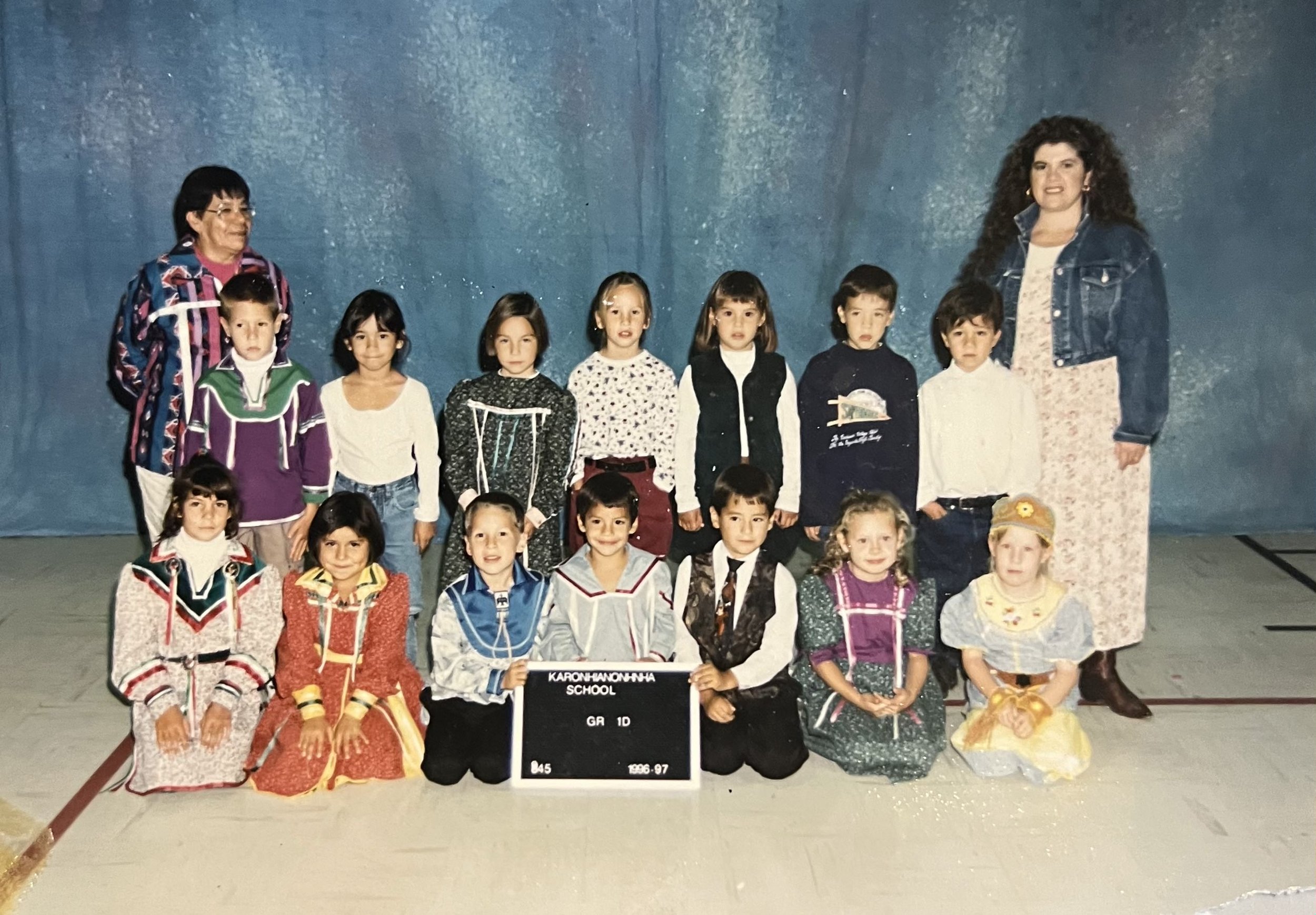
Good and proud
I worked at Karonhianónhnha' Tsi Ionterihwaienstáhkhwa' for 20 years, starting in 1989. When I started, they were struggling to find teachers. We had quite a lot of speakers back then but few that would teach. I began as a volunteer teacher’s assistant to help a friend of mine who taught social studies and science because he would sometimes be at a loss for words.
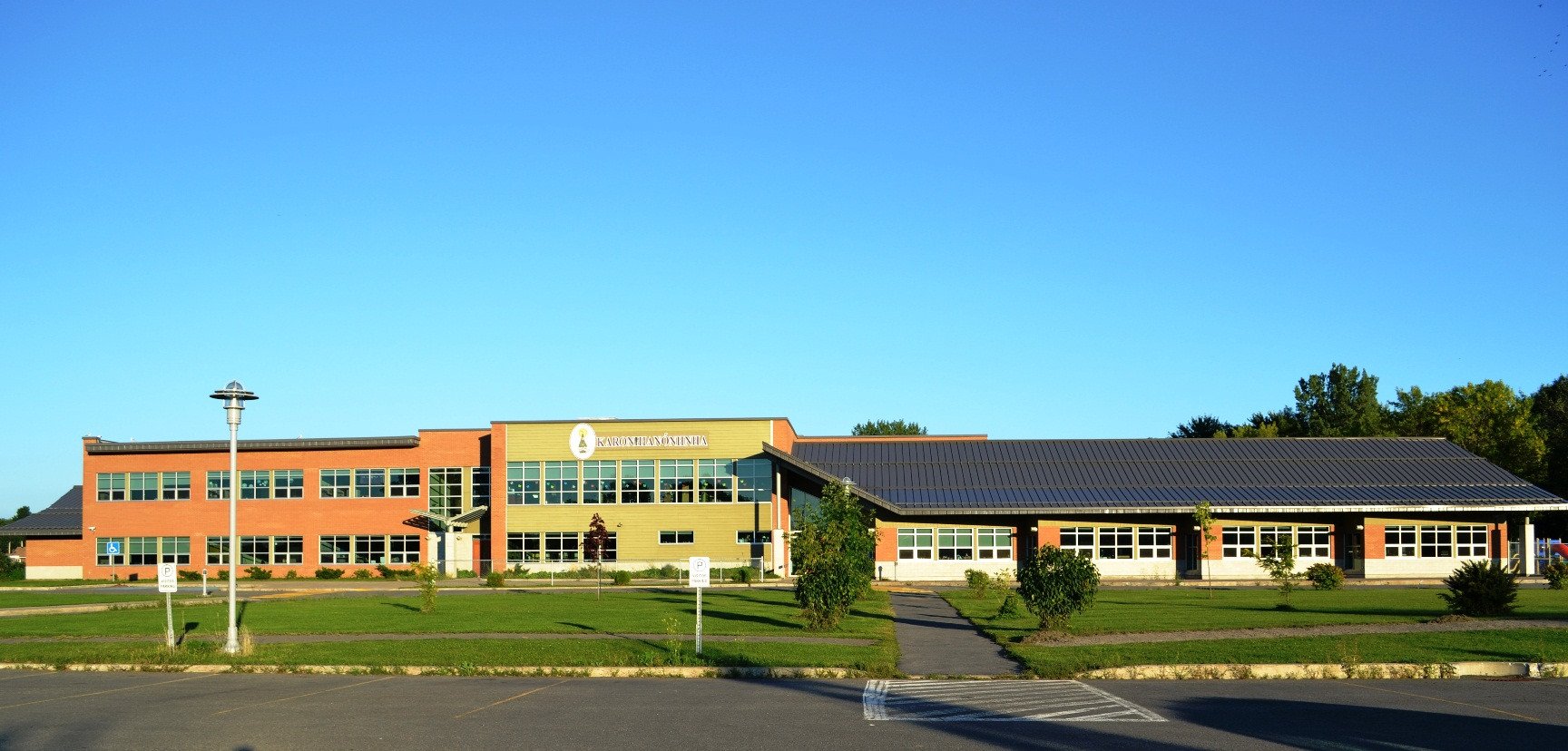
Change is hard
It seems everything important begins with a protest. When Kanien’kéha immersion first started, it became an issue in our community. It was thought that teaching culture and language would hold one back from making progress in school.
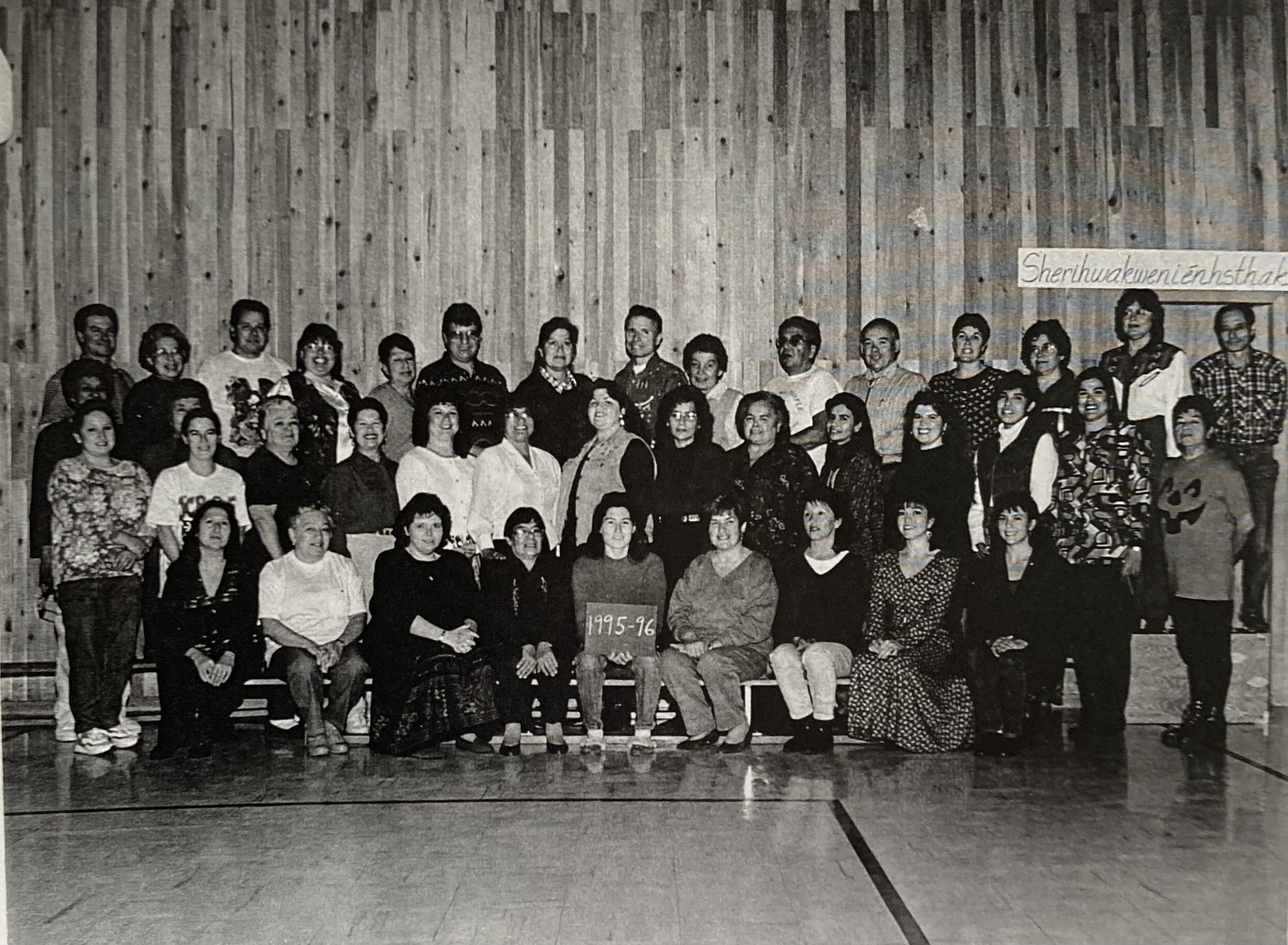
Make one school
There was a big sign in front of where the Ed Center used to be, where the library is today, inviting people to come and give their opinion. There were many opportunities for parents to voice their opinion or concerns. People did not come forward, so it looked like it was a go. I remember thinking it will never work. I hear the talk. Parents will not accept this, so I brought that up at an admin meeting.
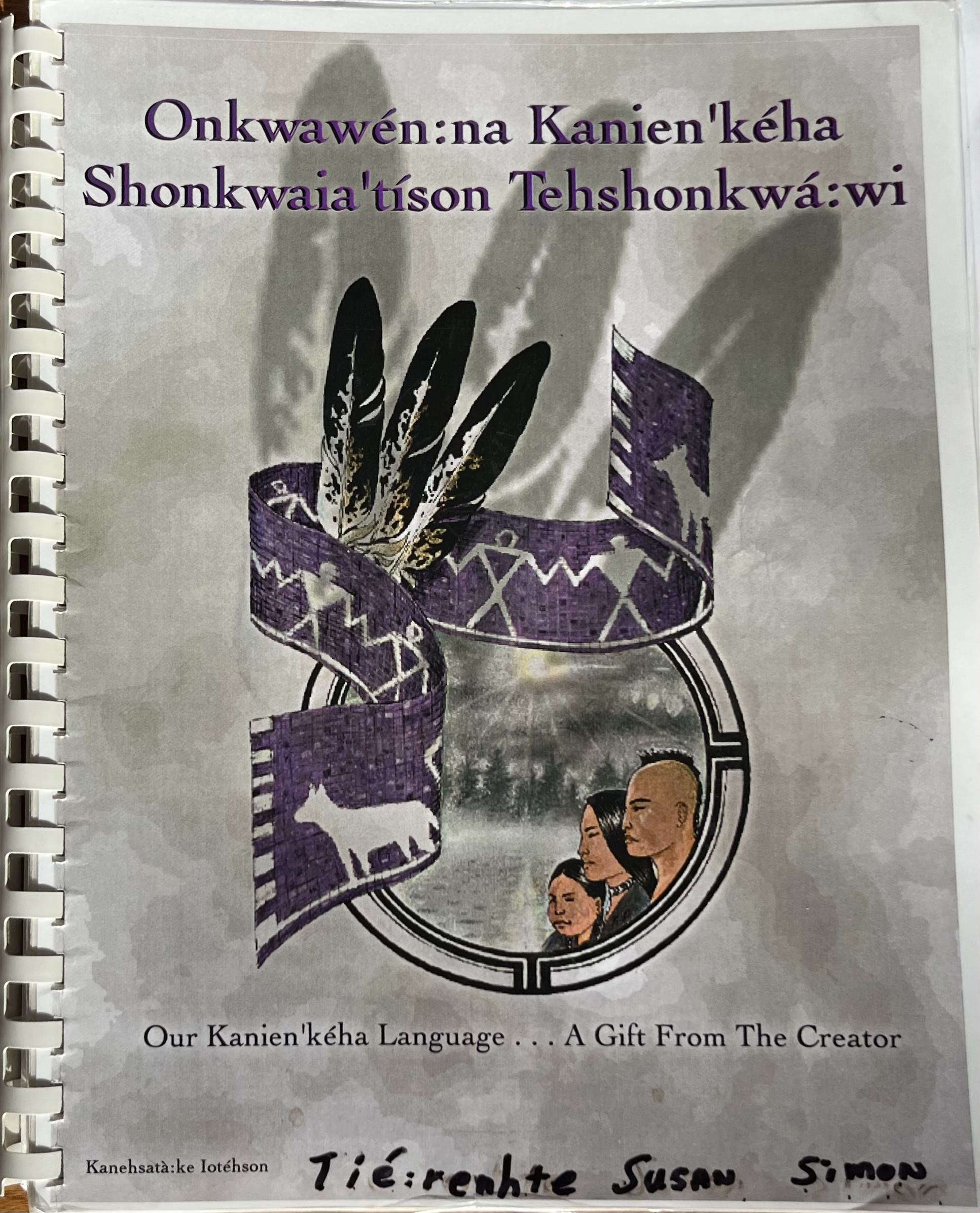
If you don't use it, you can lose it
I’ve helped write a lot of books. I helped with the typing but it would take so long because the language is not like English. There are only 11 letters in our language but there are so many accents. Language groups in several Mohawk communities have used those books we made.
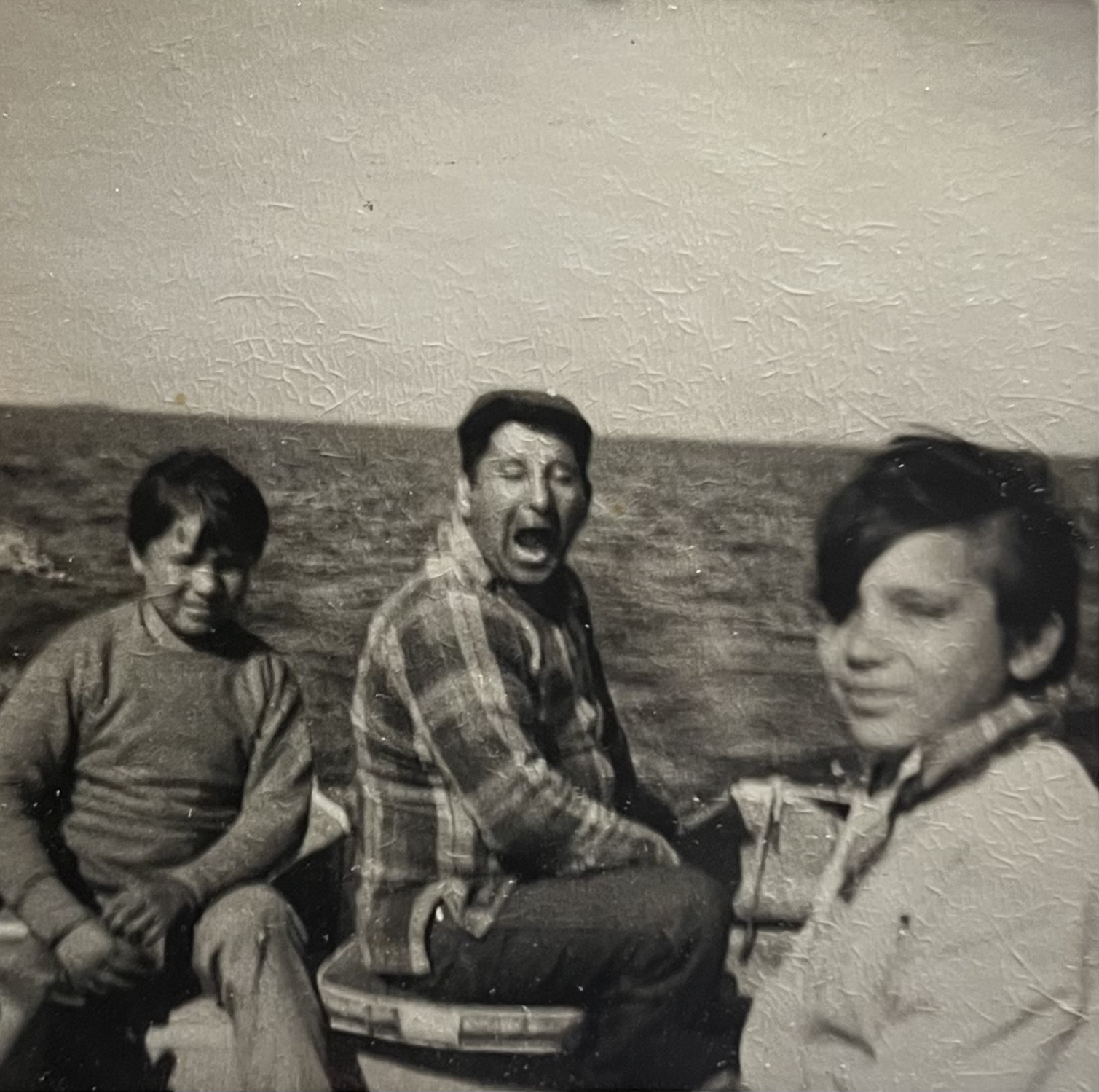
Kwítaro
Halfway through eleventh grade I walked out of the school I was going to in Massena. I left because in social studies class, we were learning things about Indians that were all lies. I had had enough of it. I told the social studies teacher, “Do you know where that book belongs? It belongs right there in that garbage can because it’s full of garbage.” So, I took my book and threw it right out in the garbage can.

Inclination to share
I wish everybody would think the way I do; embracing the idea of helping one another and not holding back their knowledge. It’s crucial because when we pass away, all that wisdom disappears with us. There are few of us left from my generation and we are dwindling, especially in recent times as we lose more friends one by one.

Stay and listen
My cousins Susan, Shirley and Doreen had left our community to work in Montreal. When they returned, something had changed. They couldn't speak our Mohawk language anymore. It saddened me to see them speak English all the time. For me, regardless of where I am, I will always talk in my Native language.

Nearby farm
I didn’t go home over the summer like some of the other kids at Spanish residential school. I would be sent to a nearby farm to work and the school would be paid for the work I did. It was like slave labour. But I liked it more than going to school. Like day and night. We would have to work at school during the year anyways. They’d make us clean the gym, the kitchen and do things around the grounds.

Scraping every last bit
When I was at Spanish residential school, they didn’t feed us enough. I was always hungry.
We had mush for breakfast - I guess it was some kind of oatmeal. For lunch and supper, we’d have soup, beans and two-day old plain rolls with no butter. And for snack, they gave us a slice of raw turnip and tea.

No written history
I was living in Detroit for a while. In Michigan, there's so many different nations there. They’re scattered around, very small, different dialects, and are disappearing now.
There’s so many words missing now that were lost.

Proper indian
I grew up speaking Mohawk, until English came in. My older sisters were learning it in school, so they started to use English in the house.
Little by little, you pick it up and when I went to school, it was every day. The older people back then couldn’t communicate in English or any other language, strictly Mohawk.
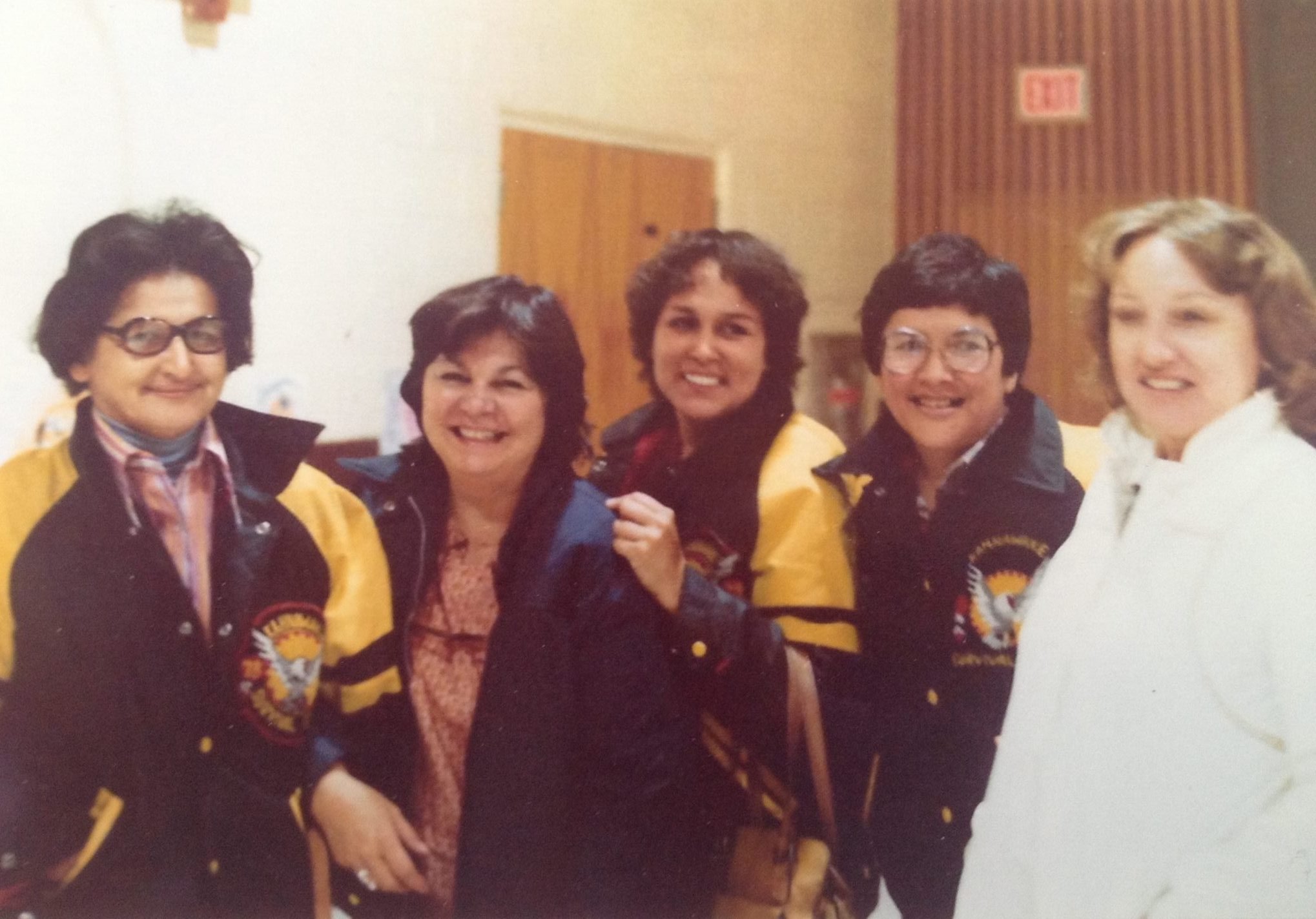
Survival school
We established the school over the weekend. The students called it Survival School because it was for the survival of our language and culture.
